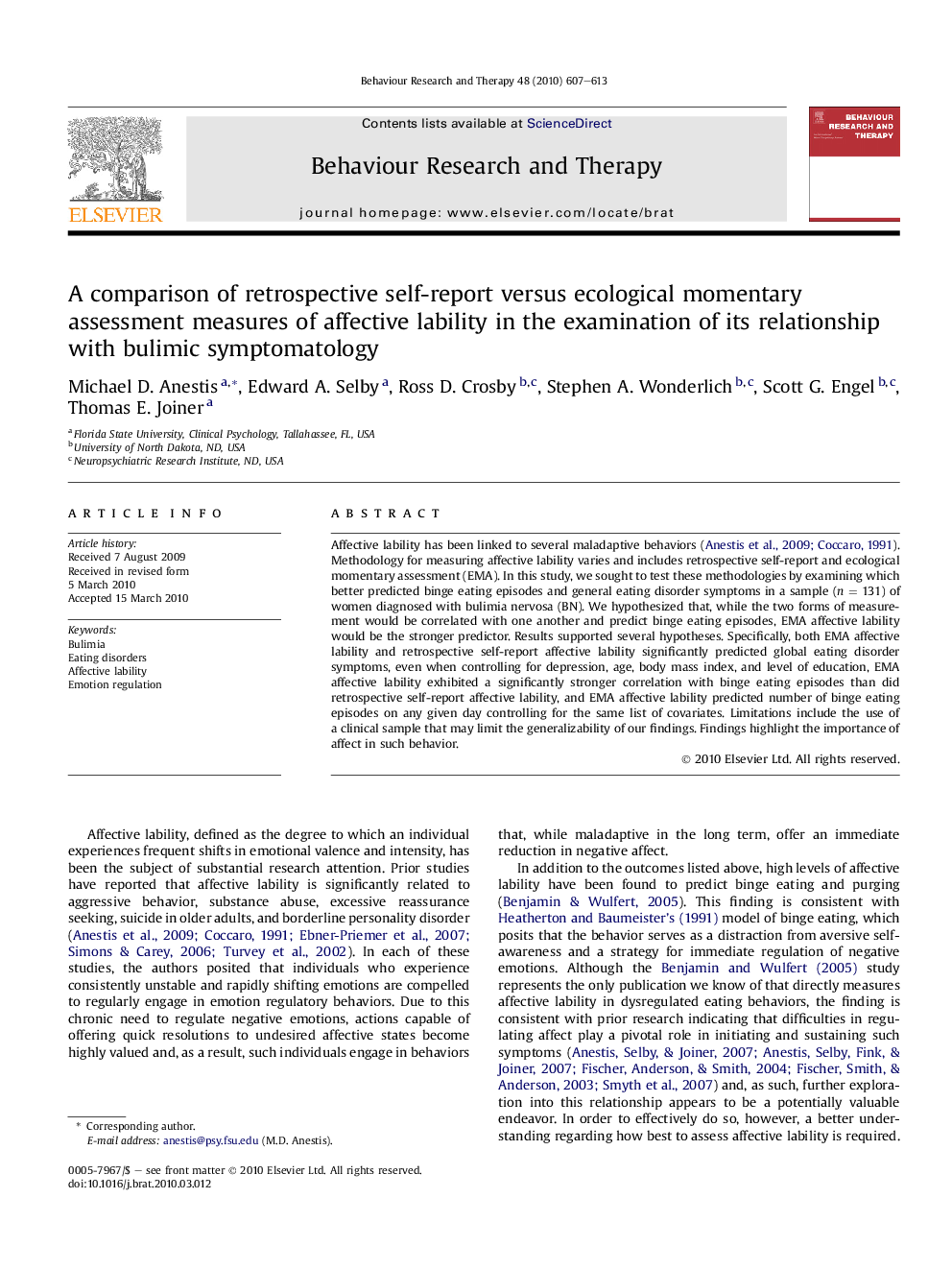| Article ID | Journal | Published Year | Pages | File Type |
|---|---|---|---|---|
| 902077 | Behaviour Research and Therapy | 2010 | 7 Pages |
Affective lability has been linked to several maladaptive behaviors (Anestis et al., 2009 and Coccaro, 1991). Methodology for measuring affective lability varies and includes retrospective self-report and ecological momentary assessment (EMA). In this study, we sought to test these methodologies by examining which better predicted binge eating episodes and general eating disorder symptoms in a sample (n = 131) of women diagnosed with bulimia nervosa (BN). We hypothesized that, while the two forms of measurement would be correlated with one another and predict binge eating episodes, EMA affective lability would be the stronger predictor. Results supported several hypotheses. Specifically, both EMA affective lability and retrospective self-report affective lability significantly predicted global eating disorder symptoms, even when controlling for depression, age, body mass index, and level of education, EMA affective lability exhibited a significantly stronger correlation with binge eating episodes than did retrospective self-report affective lability, and EMA affective lability predicted number of binge eating episodes on any given day controlling for the same list of covariates. Limitations include the use of a clinical sample that may limit the generalizability of our findings. Findings highlight the importance of affect in such behavior.
